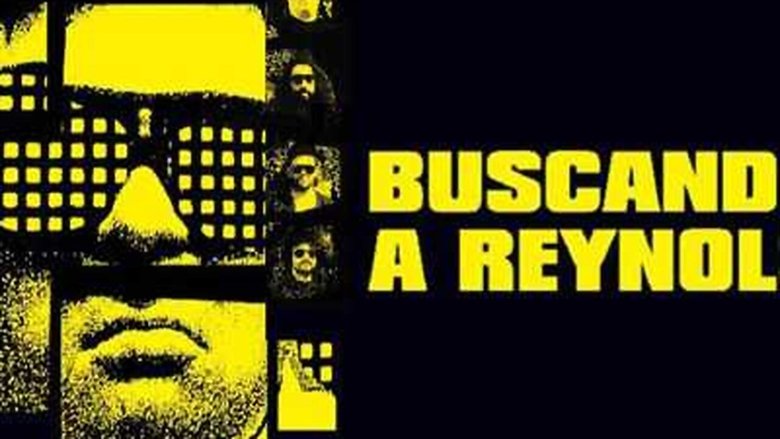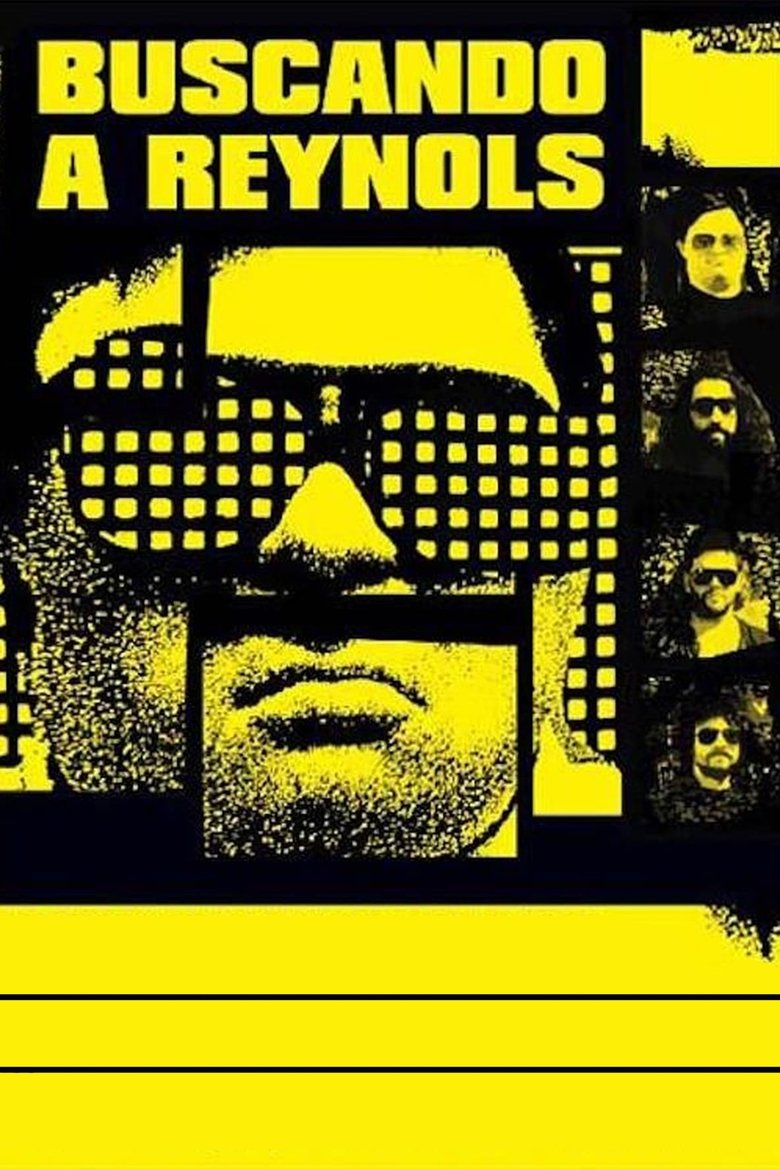Loading


Buscando a Reynols
Genres
DocumentaryMusic
Overview
Documentary about the enigmatic and experimental music group "Reynols", his lead singer and leader who was down syndrome and the peculiarity of having a discography published in the most dissimilar corners of the planet.
Details
Budget
$0
Revenue
$0
Runtime
75 min
Release Date
2005-05-11
Status
Released
Original Language
Spanish
Vote Count
5
Vote Average
6.8
Cast
Meet the talented actors who bring the movie to life.
Miguel Tomasín
Self
Alan Courtis
Self
Roberto "Moncho" Conlazo
Self
Patricio Conlazo
Self
Similar Movies
Explore movies similar to this one that you might also enjoy.
0.0
Transitory
Diego Tejerina, a prisoner with temporary releases, uses his knowledge of sociology to reflect on freedom and confinement.
2019-01-01 | es
0.0
Happy on the Ground: 8 Days at Grammy Camp
Talented teen musicians from around the USA spend a week working with Grammy nominated professionals
2011-04-16 | en
3.0
Heaven Tonight
The film covers the conflict between a father and his son both being musicians. The father is the leader of a band making rock-music from the 60s but his son becomes a star of techno-pop music.
1990-11-12 | en
0.0
El mundo que inventamos
A provincial man comes to the big city and finds true love.
1973-02-22 | es
8.0
Santiago's Path: Disappearance and Death of Santiago Maldonado
Santiago Maldonado disappeared in the midst of repression against a Mapuche community that claimed to Luciano Benetton for his land. His body was found 78 days later. The need for truth and justice continues
2018-08-01 | es
0.0
Jerome Lejeune - To the Least of My Brothers and Sisters
To the Least of My Brothers and Sisters is a new documentary on the life of Jerome Lejeune, the Father of Modern Genetics that was made to celebrate the 20th anniversary of his death. Filmed on two continents, it contains numerous interviews with former colleagues, families, current medical researchers, and others, all who express the importance of Jerome Lejeune in both the history of medicine and the defense of the dignity of human life.
2015-04-02 | fr
3.7
Angels with Broken Wings
Charlotte Lord, a widow in her early forties and owner of Manhattan's smartest modiste shop, is about to marry Guy Barton, a wealthy businessman. But Mexican divorces have been declared illegal, so Guy is still married to Sybil Barton, an unscrupulous gold-digger who left him twelve years earlier. She demands that Guy give her $250,000 for his freedom.- Written by Les Adams
1941-05-27 | en
0.0
Jefftowne 2
Jeff Towne revisited four years after the release of the original film.
2003-06-17 | en
0.0
'78 Cup - The Power of Football
Documentary about the Football World Cup held in Argentina in 1978, focusing on the competition and behind the scenes of the most important soccer competition in the world. Two versions of the 1978 official film exist, the first "Copa 78 - O Poder do Futebol" was made by Brazilian directors Maurício Sherman and Victor di Mello in 1979 but was later withdrawn by FIFA because of its controversial content. The film includes an interview with Rodolfo Galimberti, one of the leaders of the Montoneros guerrilla group and also made accusations that the Argentinian competition organisation committee had deliberately hindered Brazilian chances of success by tampering with the pitch at Mar del Plata.
1979-11-12 | pt
6.0
White Walls Say Nothing
Buenos Aires is a complex, chaotic city. It has European style and a Latin American heart. It has oscillated between dictatorship and democracy for over a century, and its citizens have faced brutal oppression and economic disaster. Throughout all this, successive generations of activists and artists have taken to the streets of this city to express themselves through art. This has given the walls a powerful and symbolic role: they have become the city’s voice. This tradition of expression in public space, of art and activism interweaving, has made the streets of Buenos Aires into a riot of colour and communication, giving the world a lesson in how to make resistance beautiful.
2017-05-02 | es
10.0
Melián 3167
César and Luis, two tango authors, visit Polaco Goyeneche at his house, to give him a song in his honor. Based on the song "Ciudadano de Saavedra" by César Rossi and Julio Pane.
2022-08-22 | es
0.0
Ricky Espinosa: El Documental
2015-06-21 | es
0.0
Todxs somos López. Donde empieza la vida y termina la muerte
A chronicle on the days without Jorge Julio López, key witness and complainant on the first trial on genocide in Argentina, dated in 2006. López, who had survived through concentration camps on the late seventies argentinian dictatorship, disappeared for the second time the day the court decision meant to condemn his kidnappers was about to be read.
2017-01-01 | es
0.0
BadPuss: A Popumentary
An Honest and hilarious look at the music industry through the eyes of an all girl rock band.
2014-11-09 | en
7.0
Soldier
A young man decides to join the army. He becomes the drummer in the military band, and his everyday life is now a combination of military training and music. What does the Argentine Army do these days, more than thirty years after the dictatorship? What does it mean to be a soldier in a country without wars?
2017-02-13 | es
7.2
All Things Must Pass
The explosive trajectory and tragic demise of iconic music retailer Tower Records, and the legacy of its rebellious founder Russ Solomon. Two hundred stores in thirty countries on five continents. In 1999 it made $1 billion. In 2006 it filed for bankruptcy. What went wrong?
2015-10-16 | en
3.5
Match 64: The Maracanã
A documentary following the day life of fans in Brazil on July 13, 2014: the day when Germany and Argentina met up in the finals of FIFA World Cup.
2015-06-08 | en
6.0
Debt
DEBT is the story of a frantic pursuit: the search for the responsible for the televised cry of hunger of Barbara Flores, an eight-year-old Argentinean girl. Buenos Aires, Washington, the IMF, the World Bank and Davos; corruption and the international bureaucratic lack of interest.
2004-10-07 | es
6.7
On the Record
The haunting story of music executive Drew Dixon as she grapples with her decision to become one of the first women of color, in the wake of #MeToo, to come forward and publicly accuse hip-hop mogul Russell Simmons of sexual misconduct. A gripping and profound examination of race, gender, intersectionality, and the toll sexual abuse takes on survivors and on society at large.
2020-01-25 | en
8.0
Social Genocide
After the fall of the military dictatorship in 1983, successive democratic governments launched a series of reforms purporting to turn Argentina into the world's most liberal and prosperous economy. Less than twenty years later, the Argentinians have lost literally everything: major national companies have been sold well below value to foreign corporations; the proceeds of privatizations have been diverted into the pockets of corrupt officials; revised labour laws have taken away all rights from employees; in a country that is traditionally an important exporter of foodstuffs, malnutrition is widespread; millions of people are unemployed and sinking into poverty; and their savings have disappeared in a final banking collapse. The film highlights numerous political, financial, social and judicial aspects that mark out Argentina's road to ruin.
2004-03-18 | es